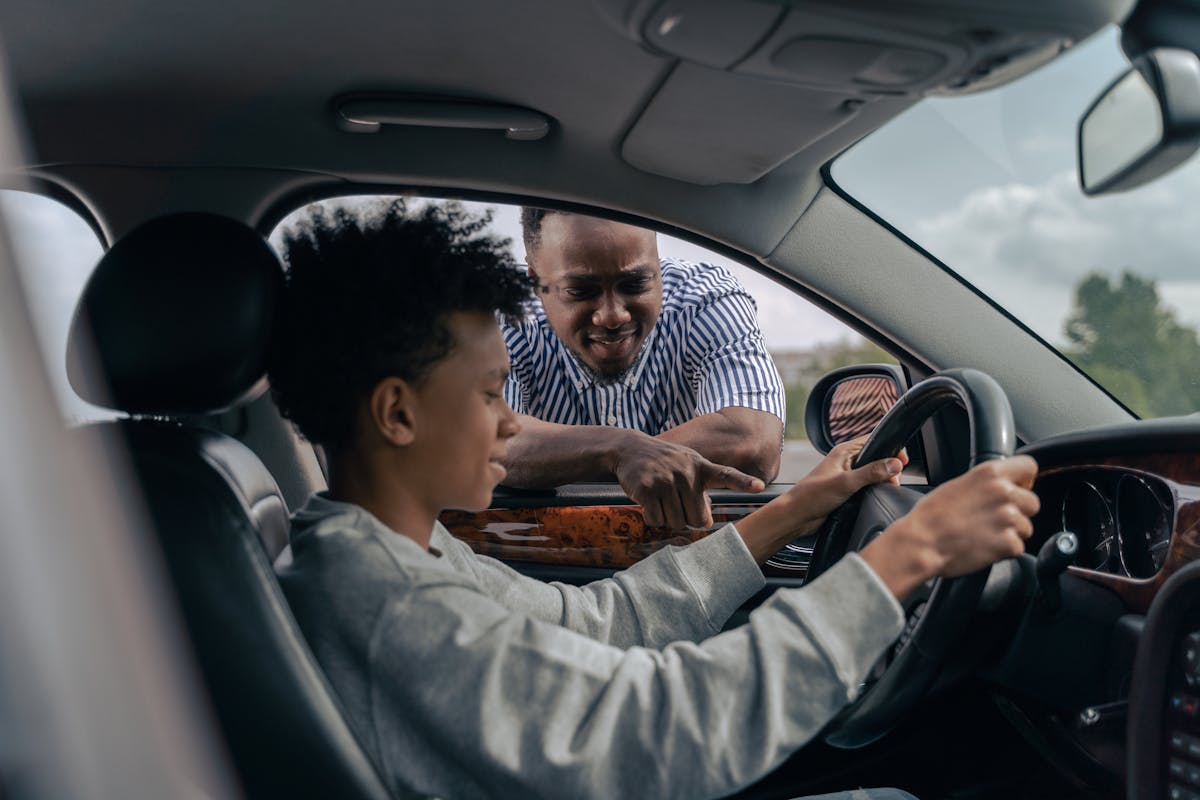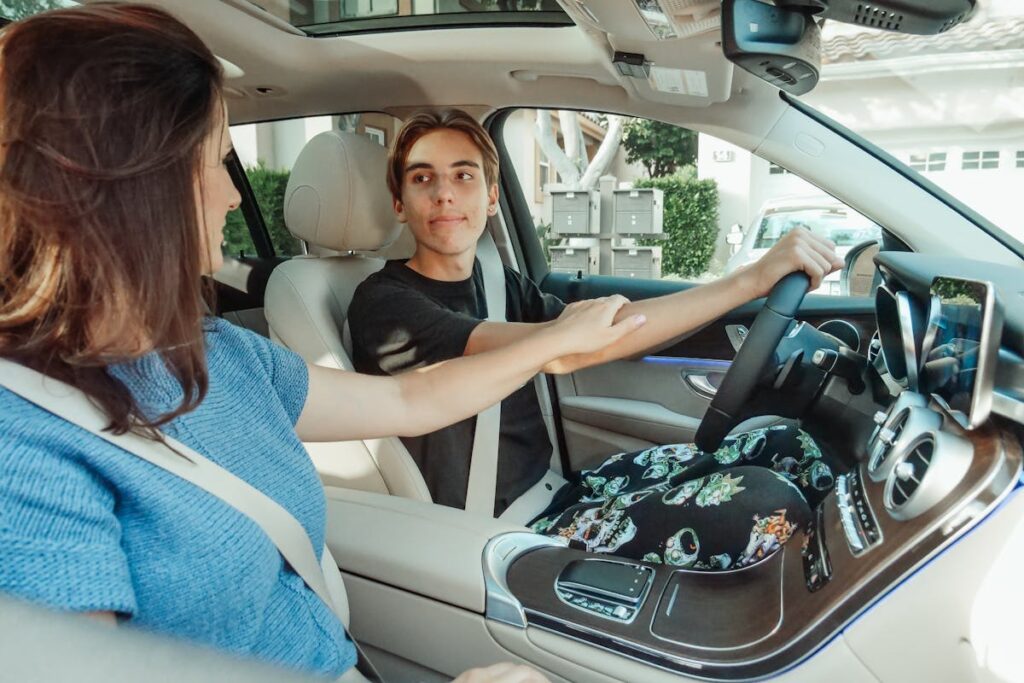California’s approach to dealing with car accidents involving minors is a mixture of unique laws and standard procedures, which often leaves people baffled. The state employs a range of laws, such as vicarious liability and negligent entrustment, to hold parents accountable for their children’s negligent driving while attempting to protect minors’ rights. Additionally, the age of the minor plays an essential role in how they are treated legally, with those aged between 15-17 held to adult standards. Intriguingly, the settlement process for minors necessitates court approval, aiming to safeguard their best interests. This intricate web of laws and procedures warrants further exploration.
Understanding California’s Traffic Laws
A significant number of traffic accidents involving minors in California are attributed to a lack of understanding or disregard for the state’s traffic laws. This resultantly compromises traffic safety and leads to serious legal implications. California traffic laws are extensive, encompassing rules on speed limits, right-of-way, seatbelts, and DUI laws. Specifically, for minors, there are provisional licensing laws, which permit gradual exposure to complex driving situations. These laws are designed to prevent accidents and guarantee the safety of all road users. However, ignorance or non-compliance with these laws exacerbates the risk of accidents. Consequently, understanding and adhering to these laws is not only a legal obligation but also a critical aspect of traffic safety, especially for minor drivers.
Parental Responsibility in Car Accidents
In California, parents can be held legally responsible for car accidents involving their minor children under certain circumstances. This responsibility arises mainly from two legal concepts: Vicarious Liability Law and Negligent Entrustment. Additionally, the role and implications of insurance claims when minors are involved in car accidents will also be explored.
Understanding Vicarious Liability Law
While it may seem unfathomable to some, under the vicarious liability law or “parental responsibility laws,” parents can be held legally responsible for the negligent driving of their minor children in California. The legal implications of vicarious liability are profound, as it can place significant financial burdens on parents. This law is based on the premise that parents have control over their minor children’s actions and accordingly, should share responsibility for their misconduct. As a result, if a minor child causes a car accident, the parents may be held liable for any resulting damages. Understanding this aspect of California law is crucial for parents, as it underscores the importance of ensuring their children are adequately trained and responsible behind the wheel.
Defining Negligent Entrustment
Building upon the concept of vicarious liability, parents in California also need to be aware of the doctrine of negligent entrustment. This legal principle arises when a vehicle owner, often a parent, knowingly allows an unfit driver, such as an unlicensed or reckless minor, to operate their vehicle. Negligent entrustment examples include situations where parents allow their child to drive while intoxicated or without a valid driver’s license. The negligent entrustment consequences can be severe. If the minor causes an accident, the vehicle owner can be held legally responsible for the resulting damage or injuries. As a result, it is essential for parents to exercise discernment when allowing their minor children to operate a vehicle.
Minors and Insurance Claims
Given the prevalence of car accidents involving minors, it is essential to understand the role of insurance claims and the responsibility borne by parents. When minors cause accidents, insurance companies often bear the brunt of financial responsibility. However, parents might also be liable if they negligently entrusted their vehicle to an underaged or inexperienced driver.
Claims for minor injuries are typically handled through the family’s insurance coverage. Nonetheless, if the minor is found to be at fault, the parents’ insurance may be required to cover the damages. In some cases, the parents’ assets could be targeted for restitution. This underscores the importance of adequate insurance coverage and safe driving education for minors in California.

Age Considerations in Accident Cases
In the domain of car accidents involving minors, age often plays a pivotal role in the legal proceedings.
This can be illustrated by three key points:
- Age Liability: In California, children under the age of 5 cannot be held liable for negligence. For children aged 5-14, liability is determined on a case-by-case basis, considering the child’s capacity to understand their actions.
- Minor Negligence: Minors aged 15-17 are typically held to the same standard of care as adults. However, they can still be considered less capable of foreseeing potential dangers, affecting judgments of negligence.
- Age and Damages: A minor’s age might affect the damages awarded in a case, particularly in relation to future earnings or quality of life.
These factors collectively underscore the importance of age considerations in accident cases.
Role of Guardianship in Liability
The legal responsibility of guardians in automobile accidents involving minors is a complex issue that merits thoughtful consideration. In California, the doctrine of “vicarious liability” often applies, holding parents or guardians accountable for the negligent actions of their minor children. Furthermore, the interplay between guardianship, insurance claims, and liability can greatly impact the outcome of these cases.
Understanding Parental Liability
While it may seem initially perplexing, parental liability in the context of car accidents involving minors is an essential aspect of California law that requires detailed understanding. When a minor causes a car accident, the parent or legal guardian may be held financially responsible under certain conditions.
- Parental consent: If the minor drives with parental consent, the parent may be liable for damages caused by the minor’s negligence or willful misconduct.
- Minor restrictions: Parents may be held accountable if they knowingly allow a minor with certain restrictions (like a provisional license) to drive in violation of those restrictions.
- Liability limits: California law limits the liability of parents or guardians to $25,000 for personal injury and $15,000 for property damage per incident.
Guardianship and Insurance Claims
Shifting focus to the role of guardianship in liability, particularly in relation to insurance claims, opens up another facet of this complex issue. It is vital to understand that guardianship rights encompass the responsibility to manage a minor’s affairs, including handling insurance coverage in the event of a car accident. Under California law, a guardian may be held liable for an accident if negligence, such as allowing an underage and unlicensed minor to drive, is proven. The guardian’s insurance may cover the damages, depending on the specifics of the policy. However, insurance companies often scrutinize claims involving minors meticulously, thus making it essential for guardians to have an extensive understanding of their policies and legal obligations.
Insurance Claims for Minor Accidents
Maneuvering the complexities of insurance claims following minor car accidents involving minors can be an intimidating task. California law requires a specific procedure to guarantee the child’s interests are protected.
- Insurance Coverage: A child’s guardian must first determine the scope of the minor’s insurance coverage. This includes understanding limits, deductibles, and any specific exclusions that may apply.
- Claim Process: The guardian then initiates the claim process. This involves notifying the insurance company about the accident, providing necessary documentation, and following the prescribed procedures.
- Representation: In some cases, the minor may need legal representation to ensure all their rights are protected during the claim process.
Understanding these steps can help make a complex process more manageable and guarantee the minor receives fair compensation for their damages.
Settlement Process for Minors
The process of settling a claim when a minor is involved takes on an added layer of complexity due to the legal protections in place for minors in California. Given that minors cannot legally consent to settlements, the court’s approval is necessary before any settlement amounts are finalized. The court considers the appropriateness of the settlement amounts, guaranteeing they adequately cover medical costs, potential future expenses, and pain and suffering. If the minor claims surpass a certain threshold, they must be put into a blocked account until the minor turns 18. The court also reviews attorney fees, typically limiting them to 25% of the settlement. This process guarantees the minor’s interests are safeguarded throughout the settlement process.
Minor’s Legal Representation Options
How does a minor involved in a car accident in California secure legal representation? California law stipulates that minors must have legal representation to protect their rights. This representation can be structured in several ways:
- Legal Guardianship: A minor’s legal guardian, typically a parent, can represent the minor’s interests in legal proceedings related to the accident.
- Court Appointed Attorney: In certain cases, the court may appoint an attorney to represent the minor.
- Retained Private Counsel: The minor’s guardian may hire a private attorney to provide legal representation.
Regardless of the chosen method, minor representation guarantees that the minor’s rights are protected during proceedings related to accidents. In all instances, the goal is to safeguard the minor’s interests and guarantee fair treatment under California law.
Impact on Minor’s Driving Privileges
Impact on a minor’s driving privileges following a car accident in California can be significant. The severity of the impact is determined through an impact assessment process that takes into account the circumstances of the accident and the minor’s driving record. The state may impose license restrictions or a complete suspension of driving privileges depending on the severity of the incident. This can range from a temporary restriction, such as limiting night-time driving, to an outright suspension for a period of time. The objective of these measures is not punitive, but protective – aiming to guarantee safety on the road. The impact on a minor’s future insurability can also be a collateral consequence, with potential for increased premiums due to the perceived risk.
Preventive Measures and Safety Tips
While the consequences of car accidents involving minors can be severe, it’s worth noting that many of these incidents can be prevented. A key strategy involves preventive education, equipping young drivers with knowledge about safe driving principles.
Three key preventive measures include:
- Driver’s Education: Extensive driver’s education for minors is essential. It provides them with the skills and knowledge to navigate California’s roads safely.
- Parental Supervision: Parents should supervise their children’s driving, providing guidance and reinforcing safe driving habits.
- Legally Mandated Restrictions: Adhering to California’s graduated licensing laws, which restrict nighttime driving and carrying young passengers, reduces risk.
Frequently Asked Questions
What Are the Psychological Impacts of Car Accidents on Minors?
Car accidents can result in significant emotional trauma for minors, often leading to anxiety, depression, and post-traumatic stress disorder. Effective coping mechanisms, such as therapy and support groups, are essential for their mental health recovery.
How Does a Car Accident Affect a Minors Future Insurability?
A car accident involving minors may increase future premiums and affect insurance eligibility. Insurers often consider such incidents when evaluating risk, potentially leading to higher costs or even denial of coverage in some circumstances.
What Programs or Resources Are Available for Minors Involved in Car Accidents?
In California, minors involved in car accidents can access various resources, like specialized insurance coverage options and legal representation. These services facilitate recovery, guarantee rights preservation, and assist in potential future insurability considerations.
Can a Minor Be Sued for Damages After a Car Accident?
In California, a minor can indeed be sued for damages following a car accident. However, liability issues often involve parental responsibility, as parents are generally held accountable for the actions of their minor children.
Are There Special Driving Courses for Minors After Being Involved in an Accident?
Yes, special minor driving courses, including accident prevention programs, are available. These courses aim to educate young drivers on safer driving practices to minimize the risk of future accidents. They are highly recommended post-accident.

